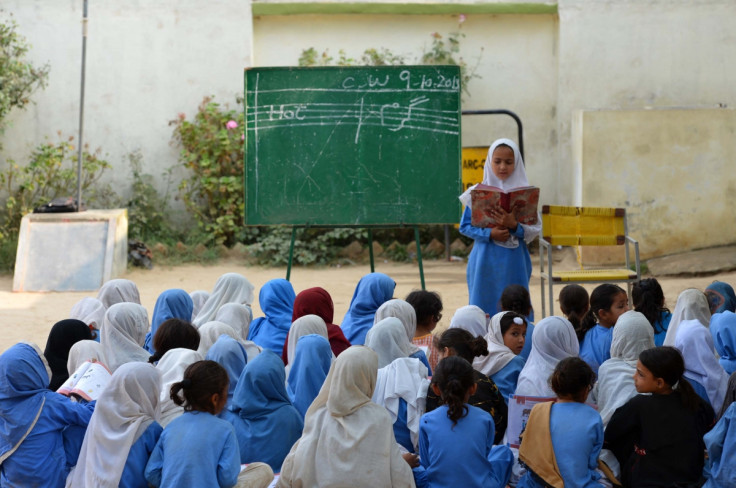UK foreign aid fails to improve education of world's most disadvantaged girls
Money set aside to help girls was instead being spent on boys, says watchdog.

Britain's foreign aid programme has come under further criticism after it has been uncovered that it has failed to improve the education of some of the world's most disadvantaged girls, despite spending hundreds of millions of pounds in aid.
The Department for International Development fund which spends £355m ($440m) to educate girls in Asia and Africa is failing to meet many of its objectives, according to the Independent Commission for Aid Impact, The Times reports.
The watchdog which looked into initiatives that included the Girls' Education Challenge, found a "pattern of underperformance" and that its results were unacceptable.
The report said that despite the Dfid's slogan, 'Leaving no one behind', its own guidelines "were having the effect of discriminating against marginalised girls."
It said that not only are funds intended to help girls were being spent on boys, in some cases, targets for supporting girls had been abandoned altogether.
The Times said that more than 61 million girls worldwide do not have access to basic schooling, which will cut down on child mortality, early marriage, HIV and young pregnancy.
The report found that a £33m ($40m) programme in Kenya to help boost opportunities for girls had its targets changed to cover twice as many boys as girls.
And in Tanzania, the Dfid "deprioritised" its support for girls under its plan to enable 27,500 more girls more up to secondary school.
In South Sudan, despite spending £64m ($79m) on girls' education, the proportion of girls supported in primary education was less than half than what was planned.
The watchdog noted that bidders for grant money were judged based on "cost-per-girl", which it said "emphasised the need to reach more beneficiaries rather than the 'most marginalised'."
The Independent Commission for Aid Impact said that a girl-focused education programme to provide children with vouchers to attend low-cost private schools in Khyber Pakhtunkhwa province in Pakistan, saw only 43% of the vouchers going to girls. This is despite the fact that girls make up 88% of the out-of-school children.
While the watchdog has blamed "poor targeting" for the failure, the Dfid said that the distribution of vouchers was to some extent dependent on the supply of private schools in Pakistan, of which there are more schools for boys.
The report has only served to add to calls for some of the UK's aid budget to be channelled to its own social care crisis.
Recently, it was revealed that billions of pounds from the UK overseas aid budget had been spent on western consultants. found that the UK's foreign aid.
The Times also uncovered that foreign aid money spent by the government's private equity arm, the CDC group had invested in local businesses like restaurant chains and online betting platforms, rather than creating jobs.
Conservative MP Peter Bone told the Times: "What sends my constituents mad is that we spend money not on worthwhile projects but we waste the money. We know we can't fund social care at the moment - yet it could be funded by not paying the increase in overseas aid spending."
© Copyright IBTimes 2025. All rights reserved.




















